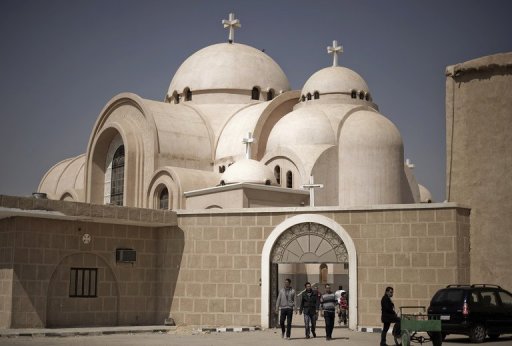CAIRO: “We are not a party; we are a center for civil society. These were among the opening words introducing a seminal conference as part of the Project on Raising Fundamental Awareness on Democracy, held at the Ibn Khaldun Center.
Over the course of four days, conference participants presented reports, analyses and lectures on the scant public participation in social and political issues in Egypt. Speakers heavily criticized the current government, with one prominent professor declaring that “the National Democratic Party is not a political party; it is an instrument of the state.
Although Egypt is considered internationally to be in a state of “trans-democracy, there is an opinion prevalent in some scholarly circles that in reality the situation is far less optimistic. According to political scholar Moheb Zaki, Egypt – despite exhibiting signs of democracy such as an “outspoken opposition press – remains “semi-authoritarian.
“Such regimes are not democracies, nor are they in the process to democratize … They are entrenched authoritarian regimes which claim to be committed to liberal democracy, Zaki wrote in a recent issue of the center s publication “Civil Society and Democratization in the Arab Word.
The conference hosted acclaimed scholars, thinkers and lecturers, including Gamal El-Banna, an Islamic scholar whose brother Hassan El-Banna founded the Muslim Brotherhood; Dr Ahmad Thabit, professor of economics and political science at Ain Shams University; and Ashraf Radi, a correspondent with Reuters press agency.
Mahmoud Amr – one of the 88 Muslim Brotherhood members who secured a place in the People’s Assembly in 2005 – was also among the academic luminaries presenting their views on democratization.
“Islam and democracy are the same, Amr told Daily News Egypt. “The only difference is that there are certain fixed rules in Islam, such as prayer and fasting, which cannot be transgressed.
Although the Muslim Brotherhood group is not currently recognized as a political party, their agenda as an aspiring political party is still a topic that arouses great suspicion among political observers.
When asked whether should the Brotherhood wins a future election the group would revert to a one party state and consequently abrogate all future elections, Amr was adamant that this would not be the case.
“We are the servants of the people, and should we not deliver promises, we will not be voted in. If we deliver what we offer, we will not be voted out.
Emphasis was placed by all speakers on the importance of democracy, not only as an abstract political concept, but as a way of life that must be given expression through education.
“When people watch theater or play football, the audience understands that there are certain rules to adhere to, said Ahmad Razaq, chairman of the Ibn Khaldun Center and of this awareness project. “This is the same when it comes to democracy, people must first understand the way it works, and that means dedication to its practice not just democracy as a theory. Saad Eddin Ibrahim, founder of the Ibn Khaldun institute who lives in self-imposed exile in the United States, could not attend the conference. However, he gave his blessings through his spokesperson, Dr Abdullah Shilbi, who is also the deputy of the project itself.
“The awareness of democratic values in society is a battle – not only to overcome political hurdles, but also a battle for work, bread and ridding our society of the culture of acceptance of suppression and passivity, Shilbi said.
The conference was accompanied by workshops for university students. Funded by the US Agency for International Development (USAID), scholars and workshop committee members will tour eight governorates as part of a two-year project to encourage cooperation between opposition parties as well as engaging the Egyptian public in the fundamentals of the democratic system.


